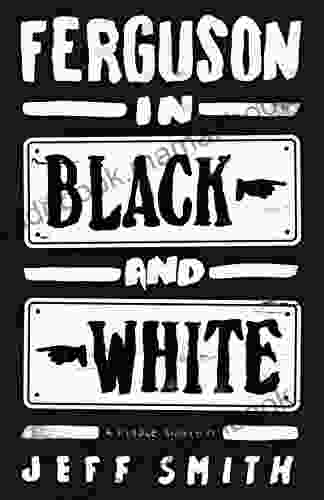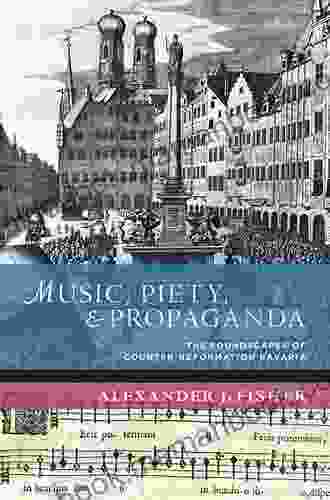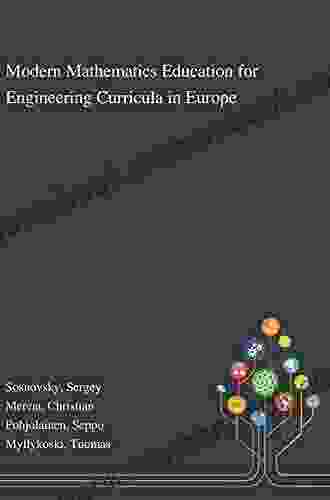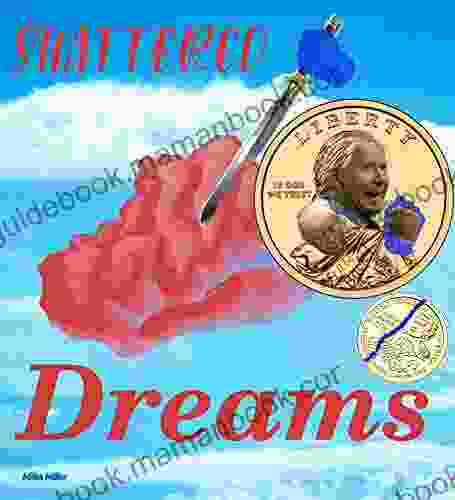Music Piety And Propaganda: The Soundscapes Of Counter Reformation Bavaria (New Cultural History Of Music)

Music has played a profound role in human societies since time immemorial. Its capacity to evoke emotion, convey messages, and shape cultural identity has made it an invaluable tool for a wide range of purposes, including religious worship, political propaganda, and social cohesion.
In this article, we will delve into the intricate relationship between music, piety, and propaganda, exploring how these three elements have intertwined and influenced each other throughout history. We will examine the use of music to foster religious devotion, disseminate political ideologies, and promote social unity, while also considering the ethical and societal implications of such uses.
5 out of 5
| Language | : | English |
| File size | : | 11901 KB |
| Screen Reader | : | Supported |
| Print length | : | 384 pages |
| Lending | : | Enabled |
Music and Piety
Music has long been recognized as a powerful medium for expressing and enhancing religious sentiments. In many cultures, music forms an integral part of religious rituals and ceremonies, helping to create a sacred atmosphere and connect believers with the divine. The chanting of mantras in Hindu and Buddhist traditions, the singing of hymns in Christian churches, and the use of qawwali in Sufi gatherings are just a few examples of how music has been employed to foster spiritual growth and devotion.
The use of music in religious contexts can be traced back to ancient times. In the Bible, music plays a significant role in both the Old and New Testaments. The Psalms, for instance, are a collection of religious poems and songs that have been used for centuries by Jews and Christians alike. Similarly, in the Islamic tradition, the Quran is often recited in a melodic manner, and music is used in Sufi rituals to induce spiritual ecstasy.
Music's ability to evoke emotion and create a sense of awe and wonder has made it a powerful tool for religious leaders seeking to inspire and motivate their followers. By combining beautiful melodies, evocative lyrics, and rhythmic patterns, musicians can create a musical experience that transcends the intellect and appeals directly to the heart and soul. This is why music has been used so effectively in religious contexts to promote piety and devotion.
Music and Propaganda
In addition to its role in religious worship, music has also been used extensively for political purposes. Propaganda is the deliberate and systematic dissemination of information to promote a particular point of view or ideology. Music can be a particularly effective tool for propaganda because it can reach a wide audience and bypass the critical thinking processes that people often use to evaluate information. By using catchy melodies, memorable lyrics, and emotionally evocative music, propagandists can create messages that are likely to stick in the minds of listeners and influence their thoughts and actions.
The use of music for propaganda purposes has a long history. In the 20th century, both totalitarian and democratic governments used music to promote their ideologies and rally support for their policies. The Nazis, for example, used music to glorify the Aryan race and demonize their enemies. The Soviets, on the other hand, used music to promote the virtues of communism and inspire workers to achieve greater productivity.
Music can be used for propaganda in a variety of ways. It can be used to create a sense of national pride and unity, to demonize enemies, to promote a particular ideology, or to encourage people to support specific policies. Music can also be used to suppress dissent and control the population. In some cases, music has even been used as a form of torture.
Music and Social Cohesion
Music can also be a powerful force for social cohesion. By bringing people together and creating a sense of shared experience, music can help to build communities and promote social harmony. This is why music is often used in social gatherings, such as festivals, weddings, and sporting events. Music can also be used to promote social change and create awareness of important issues. For example, music has been used to raise awareness of poverty, climate change, and the rights of marginalized groups.
The use of music for social cohesion has been recognized by governments and social organizations around the world. Many countries have national anthems and other patriotic songs that are used to promote unity and national pride. Music is also often used in schools and other educational settings to teach children about their own culture and heritage. Additionally, music has been used to promote peace and reconciliation in conflict-ridden areas.
Ethical and Societal Implications
The use of music for religious, political, and social purposes has significant ethical and societal implications. When music is used to promote hatred, violence, or discrimination, it can have a negative impact on individuals and society as a whole. For example, the use of music to promote anti-Semitism during the Holocaust contributed to the dehumanization of Jews and made it easier for people to justify their persecution.
It is important to be aware of the potential dangers of using music for propaganda purposes. Music can be a powerful tool for good, but it can also be used for evil. When music is used to manipulate people's emotions and beliefs, it can have a corrosive effect on society.
There are a number of ethical considerations that should be taken into account when using music for religious, political, or social purposes. First, it is important to ensure that the music is not being used to promote hatred, violence, or discrimination. Second, it is important to respect the cultural and religious sensitivities of others. Third, it is important to avoid using music in a way that is deceptive or misleading.
By following these ethical guidelines, we can help to ensure that music is used for good and not for evil.
Music is a powerful force that can be used for a variety of purposes, including religious worship, political propaganda, and social cohesion. When used in a positive way, music can inspire, motivate, and bring people together. However, when used in a negative way, music can also be used to manipulate people's emotions and beliefs and to promote hatred and violence. It is important to be aware of the potential dangers of using music for propaganda purposes and to use it wisely.
5 out of 5
| Language | : | English |
| File size | : | 11901 KB |
| Screen Reader | : | Supported |
| Print length | : | 384 pages |
| Lending | : | Enabled |
Do you want to contribute by writing guest posts on this blog?
Please contact us and send us a resume of previous articles that you have written.
 Top Book
Top Book Novel
Novel Fiction
Fiction Nonfiction
Nonfiction Literature
Literature Paperback
Paperback Hardcover
Hardcover E-book
E-book Audiobook
Audiobook Bestseller
Bestseller Classic
Classic Mystery
Mystery Thriller
Thriller Romance
Romance Fantasy
Fantasy Science Fiction
Science Fiction Biography
Biography Memoir
Memoir Autobiography
Autobiography Poetry
Poetry Drama
Drama Historical Fiction
Historical Fiction Self-help
Self-help Young Adult
Young Adult Childrens Books
Childrens Books Graphic Novel
Graphic Novel Anthology
Anthology Series
Series Encyclopedia
Encyclopedia Reference
Reference Guidebook
Guidebook Textbook
Textbook Workbook
Workbook Journal
Journal Diary
Diary Manuscript
Manuscript Folio
Folio Pulp Fiction
Pulp Fiction Short Stories
Short Stories Fairy Tales
Fairy Tales Fables
Fables Mythology
Mythology Philosophy
Philosophy Religion
Religion Spirituality
Spirituality Essays
Essays Critique
Critique Commentary
Commentary Glossary
Glossary Bibliography
Bibliography Index
Index Table of Contents
Table of Contents Preface
Preface Introduction
Introduction Foreword
Foreword Afterword
Afterword Appendices
Appendices Annotations
Annotations Footnotes
Footnotes Epilogue
Epilogue Prologue
Prologue Sherry Thomas
Sherry Thomas David Gilman
David Gilman Wesley Freeman
Wesley Freeman Katherine Mader
Katherine Mader Clare Pooley
Clare Pooley Steven Hayden
Steven Hayden Heinrich Mann
Heinrich Mann Alfonso Segura
Alfonso Segura Laura Apol
Laura Apol Alexander Weinstein
Alexander Weinstein Mark Nelson O Brien
Mark Nelson O Brien Robert Glazer
Robert Glazer Siim Land
Siim Land Jeff Smith
Jeff Smith Matthew Shenoda
Matthew Shenoda Hope Mirrlees
Hope Mirrlees Ingrid Fetell Lee
Ingrid Fetell Lee Kevin Hardman
Kevin Hardman Philip Hobsbaum
Philip Hobsbaum Oman Sukmana
Oman Sukmana
Light bulbAdvertise smarter! Our strategic ad space ensures maximum exposure. Reserve your spot today!

 Isaac AsimovWomen Detectives: The Lady Sherlock and the Revival of Victorian Women's Role...
Isaac AsimovWomen Detectives: The Lady Sherlock and the Revival of Victorian Women's Role... Hudson HayesFollow ·18.3k
Hudson HayesFollow ·18.3k Deion SimmonsFollow ·16.8k
Deion SimmonsFollow ·16.8k Rob FosterFollow ·6.5k
Rob FosterFollow ·6.5k Yasunari KawabataFollow ·9k
Yasunari KawabataFollow ·9k Devon MitchellFollow ·4.5k
Devon MitchellFollow ·4.5k Donald WardFollow ·5.9k
Donald WardFollow ·5.9k Jeff FosterFollow ·10k
Jeff FosterFollow ·10k Quincy WardFollow ·15k
Quincy WardFollow ·15k

 Leslie Carter
Leslie CarterWhat We Must Do Now To Save Reproductive Freedom
Roe v. Wade, the landmark...

 Cade Simmons
Cade SimmonsThe Unbreakable Bond: Unveiling the Connection Between...
In the realm of...

 Roy Bell
Roy BellFull Contact Chapter Five: The Final Chapter of the Hatch...
In this gripping to the Hatch saga, we...

 Fred Foster
Fred FosterUnveiling the Tale of the Genpei Wars: A Comprehensive...
Deep within the annals of Japanese history,...

 Jaden Cox
Jaden CoxFerguson in Black and White: A Profound Examination of...
The Ferguson tragedy, sparked by the fatal...
5 out of 5
| Language | : | English |
| File size | : | 11901 KB |
| Screen Reader | : | Supported |
| Print length | : | 384 pages |
| Lending | : | Enabled |












